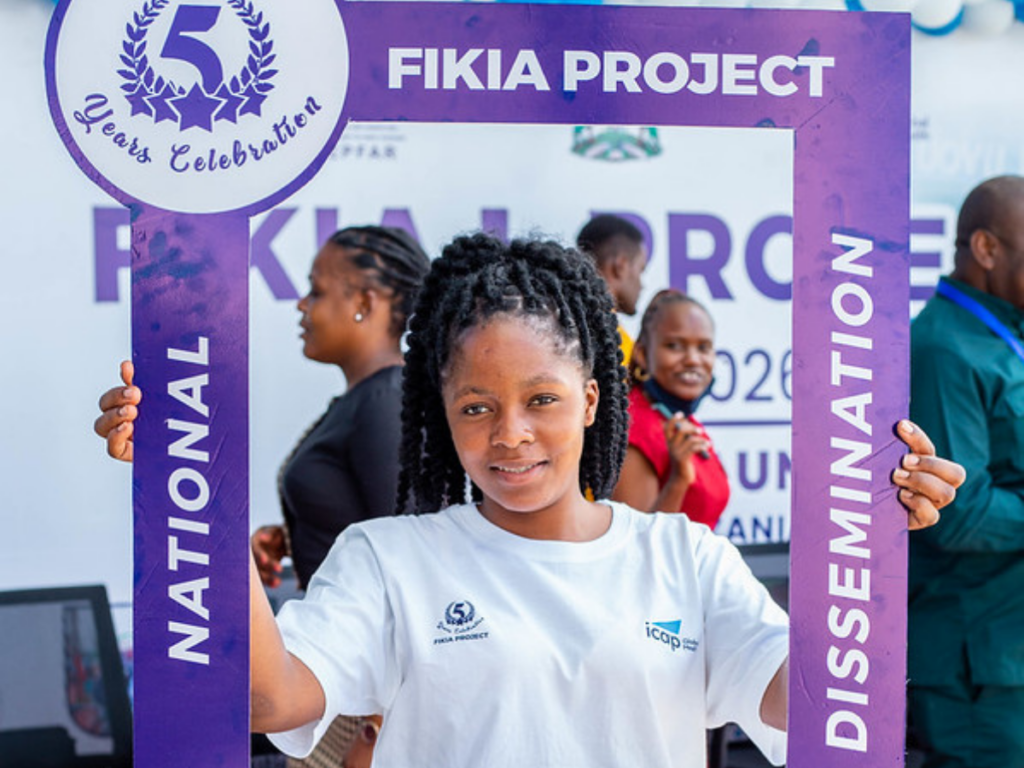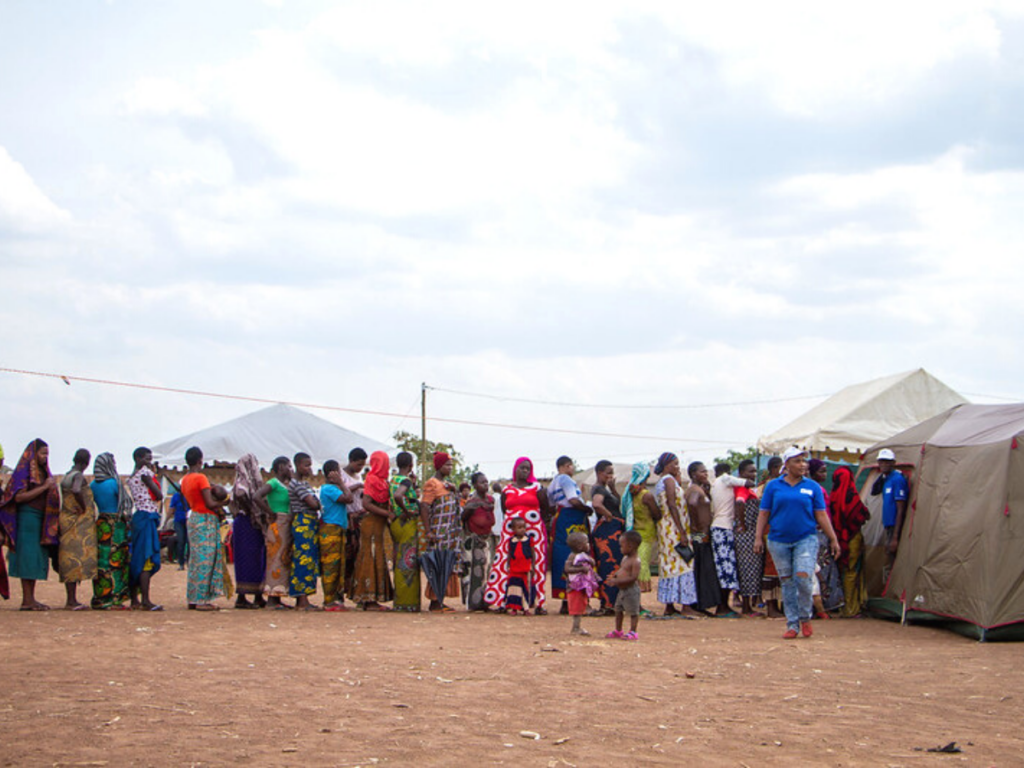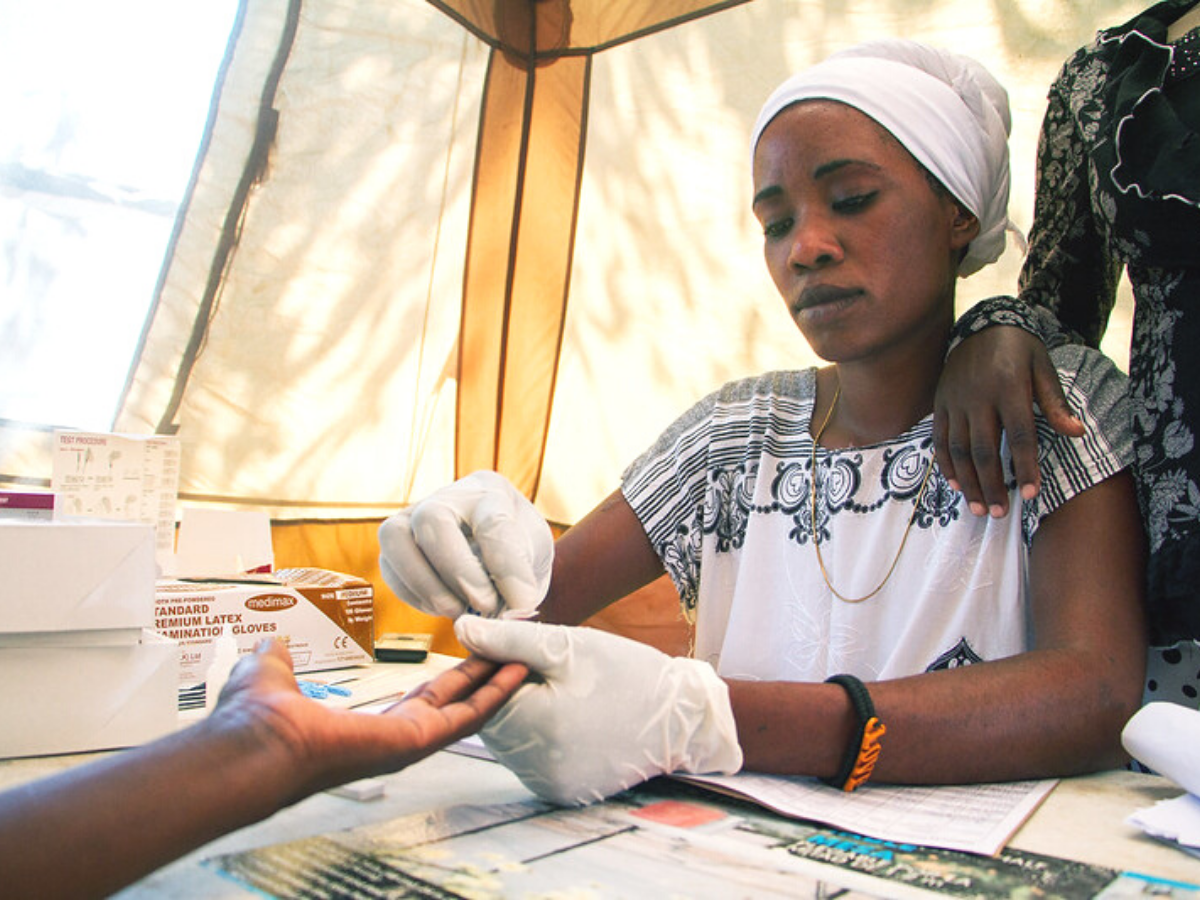From 2016 to 2021, a project designed and supported by ICAP at Columbia University delivered critical HIV health services to key and vulnerable populations in Tanzania.
Known as FIKIA – “to reach” in Kiswahili – the project brought HIV testing, prevention, and care to those most at risk for contracting or transmitting HIV. These include sex workers, people who inject drugs, men who have sex with men, adolescent girls and young women, migrant workers, fisherfolk, and miners.
The impactful program was funded by the U.S. President’s Emergency Plan for AIDS Relief (PEPFAR) through the Centers for Disease Control and Prevention (CDC) and led by Tanzania’s Ministry of Health.
Since FIKIA’s inception, the project reached 2,037,877 individuals with HIV testing and counseling services in nine regions throughout the country, including Dar-es-Salaam, Geita, Kagera, Kigoma, Mara, Mwanza, Pwani, Simiyu, and Tanga.
On March 2, ICAP hosted a dissemination event in the national capital, Dodoma, to showcase the collaborations that made FIKIA possible, its innovations, and its key achievements. Attendees included guest-of-honor Beatrice Mutayoba, MD, director of preventive services at the Ministry of Health, Oscar Earnest Rwabiyago, MD, from CDC in Tanzania, and several government officials, ICAP representatives, and project stakeholders.

Julie Franks, PhD, technical specialist in ICAP’s clinical and training unit and principal investigator for FIKIA, said that the project’s success is owed to its innovative approach.
“Like many community-based programs, FIKIA’s foundation is trained peer outreach workers who know their communities and can engage individuals in need of services but are unable or unwilling to come to health facilities,” Franks said. “FIKIA went further, pairing peer workers with trained government facility staff to extend the reach of health services into community spaces. By offering HIV testing, prevention, and ART initiation in community settings, FIKIA teams established trusting relationships that encouraged key population members and those in remote areas to come to facilities when they needed to. This model got us closer to the UNAIDS 95-95-95 targets in the districts we served. It also prepared us to respond quickly in the early months of the COVID-19 pandemic, when community-based services to reduce the number of people coming to health facilities were essential to reducing community transmission.”
FIKIA participated in national demonstration projects to roll out HIV self-testing in Tanzania and pre-exposure prophylaxis (PrEP) to prevent HIV acquisition and contributed to making both innovations part of Tanzania’s national HIV prevention strategy. Other FIKIA initiatives to meet the health care needs of hard-to-reach and vulnerable key populations included mobile pharmacies to deliver antiretroviral therapy (ART) refills and conduct PrEP follow-up visits, condom distribution machines installed close to venues where key and vulnerable populations gather, and the use of boats to bring service providers to remote Lake Victoria islands.

In 2019, FIKIA became an implementing partner of the Determined, Resilient, Empowered, AIDS-Free, Mentored, and Safe (DREAMS) initiative in Kagera and Mwanza regions. DREAMS reaches adolescent girls and young women aged 15 to 24 years with a package of HIV services, including HIV sensitization and testing, referrals for reproductive health and other services, peer support, and economic empowerment through group savings and income-generating activities. Within just two years, FIKIA enrolled over 48,000 girls in DREAMS, and issued a total of 99 million TZS ($42,682 USD) in loans to support 742 income-generating activities. In addition to loans, DREAMS participants received HIV testing, condoms, linkage to ART if diagnosed HIV-positive, access to PrEP, referrals for post-gender-based violence care, and vocational training.
“Before the launch of FIKIA activities, many young women and adolescent girls in remote and peri-urban districts had no access to comprehensive community HIV services,” said Haruka Maruyama, MPH, ICAP’s country director in Tanzania. “With a program like DREAMS, there is an opportunity to address the structural and social drivers that increase women and girls’ HIV risk, including poverty, gender inequality, sexual violence, and limited opportunities for education.”
In Mutayoba’s speech at the FIKIA dissemination meeting, she highlighted the project’s ability to adapt quickly amid the COVID-19 pandemic to ensure limited service interruptions to clients, laying the groundwork for long-term quality service delivery. At the end of her speech, she announced the launch of a follow-on project, FIKIA Plus.
Building on FIKIA experience, FIKIA Plus will support high-quality comprehensive HIV services tailored to the needs and preferences of populations in Mwanza, one of the largest regions in Tanzania, which encompasses both fishing communities and rural farming districts. FIKIA Plus’ boat, mobile pharmacies, and mobile clinics will ensure access to essential services across the Mwanza region. One of the hallmarks of the project will be the continued role of trained peer workers providing health education, condom distribution, and referrals for HIV testing in facilities as well as at the community level.
Reflecting their deep engagement in FIKIA’s services, several beneficiaries of the project attended the dissemination meeting. As one beneficiary said at the meeting, “I’m working at ICAP as a peer educator…I have been conducting preliminary screenings by asking individuals specific questions about HIV, TB, sexual transmitted infections, and other issues. I have also been educating my peers on how to protect themselves from HIV by using condoms as well as on the importance of other services such as family planning.”
About ICAP
A major global health organization that has been improving public health in countries around the world for nearly two decades, ICAP works to transform the health of populations through innovation, science, and global collaboration. Based at Columbia Mailman School of Public Health, ICAP has projects in more than 30 countries, working side-by-side with ministries of health and local governmental, non-governmental, academic, and community partners to confront some of the world’s greatest health challenges. Through evidence-informed programs, meaningful research, tailored technical assistance, effective training and education programs, and rigorous surveillance to measure and evaluate the impact of public health interventions, ICAP aims to realize a global vision of healthy people, empowered communities, and thriving societies. Online at icap.columbia.edu








